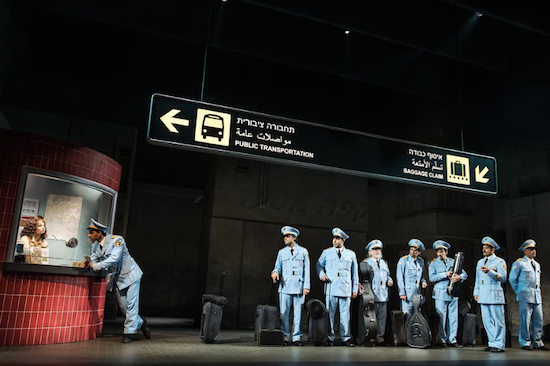From Park Slope to the Negev Desert: Eagle interview with playwright Itamar Moses on ‘The Band’s Visit’

It seems appropriate that the hottest play currently on Broadway is set in the Negev desert. “The Band’s Visit,” the critically acclaimed, many performances-sold-out-till-Spring Broadway hit, is based on the 2007 Israeli film and tells the story of an Egyptian police band that’s sent to the wrong remote village in the Israeli desert, where the locals, skeptical at first, take them in. The play becomes a moving exploration of cross-cultural exchange. And a quiet gesture of hope.
The play’s book was written by Park Slope resident Itamar Moses. Moses’ previous plays have included “Bach at Leipzig,” “Celebrity Row,” “Back Back Back,” “Outrage” and the musicals “Nobody Loves You” (with Gaby Alter) and “The Fortress of Solitude” (with Michael Friedman). Moses was born and raised in Berkeley, California, and earned his bachelor’s degree at Yale University and his Master of Fine Arts degree in dramatic writing from New York University.
Recently, at Kos Kaffe on Fifth Avenue in Park Slope, I sat down with Moses to discuss “The Band’s Visit,” the joys and perils of adaptations and the serendipity of such a gentle, charming wisp of a play becoming the mega-hit of this Broadway season.

Brooklyn Boro
View MoreNew York City’s most populous borough, Brooklyn, is home to nearly 2.6 million residents. If Brooklyn were an independent city it would be the fourth largest city in the United States. While Brooklyn has become the epitome of ‘cool and hip’ in recent years, for those that were born here, raised families here and improved communities over the years, Brooklyn has never been ‘uncool’.